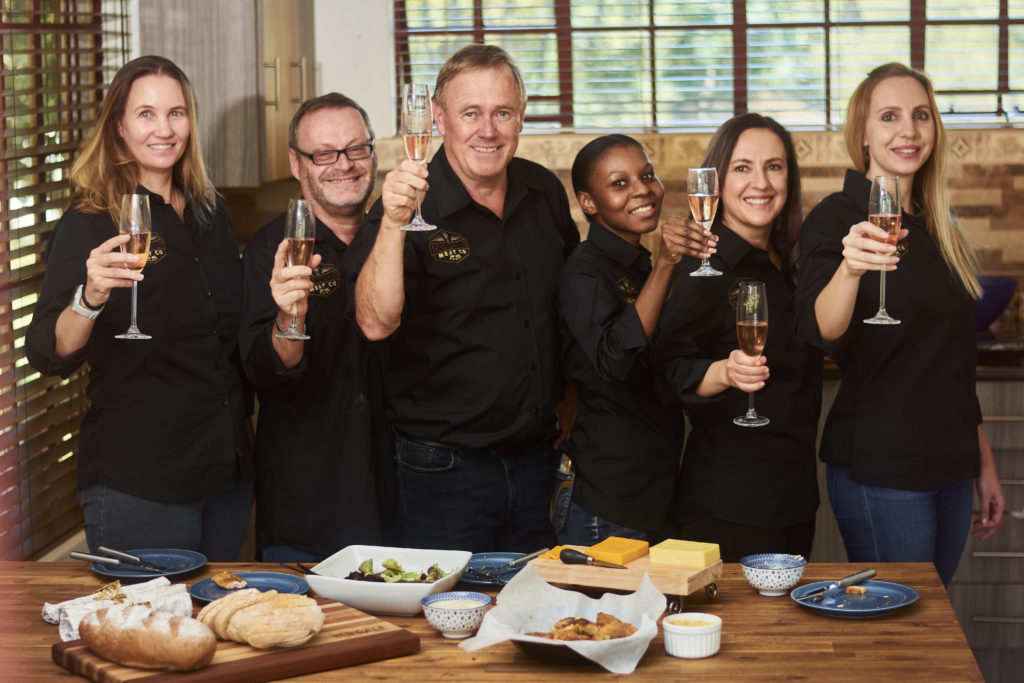Mogale Meat Has Big Cultivated Meat Plans for Africa, Starting With Chicken
4 Mins Read
South African food tech startup Mogale Meat has unveiled the first cultivated chicken to come out of Africa. The company claims the innovation represents a new dawn for African food security, alongside biodiversity and wildlife conservation. It also comes as Africa’s population is expected to double in the next 30 years and the continent moves to shape a new sustainable domestic food system.
Mogale has emerged from 18 months of R&D to showcase its inaugural cultivated chicken. In the future, the startup intends to focus on cultivating game meat, but for breakthrough demonstration purposes, chicken was selected. As one of over 100 companies globally to be developing cultivated meat, Mogale cites its complete chicken breast as a milestone moment for the industry and South Africa.

Meat with a mission
Food security is a pressing issue across the whole of Africa. Existing agricultural systems are placing pressure on the biodiversity of the landscape, while impacting animal habitats. As a result, there has been a pivot towards alternative and more sustainable proteins. Plant-based meats offer choice but can be prohibitively expensive. Cultivated meat is a viable option, but only if domestically produced and with costs being perpetually driven down as a matter of urgency. Mogale was founded with a rooted understanding of these issues.
Mogale reports that it has taken eight months to successfully cultivate its chicken breast. The endeavour served as its entry into the XPRIZE Feed the Next Billion competition. The startup has been shortlisted as the only semi-finalist from Africa, out of 32 teams participating. Entrants were asked to choose between chicken and fish as a development focus. Mogale selected the former due to it being the most popular meat across the continent. Now, it is turning its attention to scaling and costing ahead of a game meat debut later this year.
Food for where the people are
With its concept proven out, Mogale is turning its attention to manufacturing methods that will benefit Africa. Other cultivated meat companies look to scale quickly, with larger facilities and strategic partnerships with restaurants. The South African startup is taking a different approach. Prototyping a new plug-and-play production system, Mogale hopes to make cultivated meat accessible “where the people are”. The idea is to make future cultivated game meat democratic in its availability, though production costs need to be addressed.
“Mogale Meat Co is raising the bar by developing BestByNature food technology that will not only impact the way people view and eat healthy game meat, but also do so by supporting the economic and social wellbeing of the wildlife industry, National Parks and the communities living with wildlife,” Dr Paul Bartels, founder and CEO of Mogale said in a statement.

Preparing for the big game
Back in October, Mogale said it was in the process of building an antelope cell biobank. At the time, it was slated to already have 500 samples from free-roaming antelope and cattle varieties to be used to develop cultivated meat products. It was also revealed that CULT Food Science had invested an undisclosed sum in the startup, garnering the investment platform a seat on the Mogale board.
Africa’s presence in the cultivated meat sector
Mogale is not alone in seeking to make cultivated meat a reality for African diners. Earlier this month, Mzansi Meat announced it has created Africa’s first cultivated beef burger. The result of two years of R&D, the burger will be debuted at an event this month. Like Mogale, Mzansi hopes its progress will offer a new wave of food security for the African continent.
Taking on the seafood industry, Sea-Stematic is Africa’s first food tech to focus on alt-seafood. The woman-founded company is currently engaged in extensive R&D to bring “honest” products to market. Founder Marica Quarsingh sees the sector as having real potential, given the current trend for replacing red meat with ‘healthier’ fish protein.
All photos by Mogale Meat.





